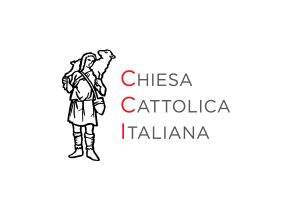 Today, Tuesday 7 April, witnessed the beginning of the course of formation for workers engaged in psycho-social support for the victims of Ebola (CBPSF). This programme, which starts with wider planning within the diocese of Makeni sponsored by the Italian Bishops’ Conference, involves the participation of the General Directorate of Italian Cooperation for Development which, through the NGO ‘Dokita’, is financing its implementation.
Today, Tuesday 7 April, witnessed the beginning of the course of formation for workers engaged in psycho-social support for the victims of Ebola (CBPSF). This programme, which starts with wider planning within the diocese of Makeni sponsored by the Italian Bishops’ Conference, involves the participation of the General Directorate of Italian Cooperation for Development which, through the NGO ‘Dokita’, is financing its implementation.
The goal of this course of formation is to foster the capacities of twenty-five such psycho-social support workers selected from parishes and religious institutions that work in the field of health and education in areas with a high incidence of Ebola, while at the same time the Dokita partner implements programmes of support for the basic health-care institutions and agencies, the primary health units (PHUs), thereby creating units for medical and psycho-social development. Indeed, whereas Dokita assures an improvement in the health-care services of these primary health units through work involving simple maintenance, the provision of hygienic and health-care material, and rapid diagnoses, the Camillian Task Force (CTF) works in the same critical area by assuring relational and human support skills to a selected group of these CBPSF. The entire initiative has at its centre the aim of thereby improving the supply of health-care services and assuring human and emotional support for the victims (the direct victims, that is to say the survivors, or the indirect victims, that is to say the family unit) of Ebola: a transversal and multi-disciplinary benefit for the same community!
Side by side with the formation of these CBPSF, and as an integral part of the process of formation, there is a further objective: to assure direct support to over 400 family units which have these psycho-social support workers as their point of reference. Indeed, in order to provide them with relational and support skills, each CBPSF will accompany twenty family units for the whole of the programme and these will be chosen on the basis of the criterion of inclusion in order to favour the most vulnerable units. With this intention, the priority of selection will favour those family units that have an economic level beneath the poverty threshold (a daily income of less than two US dollars) and a high index of the presence of orphans, who are often entrusted to the extended family. The CBPSF will accompany the over 400 family units and will assure them, on the one hand, human and relational support, and, on the other, an improvement in their living conditions through the monthly provision of a conditional cash transfer (a small monthly ‘cheque’ issued on the condition that the person goes to the health-care centres, and to support the school studies of the children); self-help groups with further donated economic support; and the purchase of school material for the orphans. In this way the CBPSF have an opportunity to put into practice the relational skills that they have learnt during the theoretical course and to make their action tangible with forms of concrete support to alleviate poverty that has been made worse by Ebola.
The course will take place over nine months (April to December 2014) through theoretical formation that will involve seventeen intensive days as well as eight months of practical experience in the local area. The theoretical part is entrusted to workers of the Centro Humanizar of Madrid (Spain) and the Pastoral Center of Nairobi (Kenya) and will be divided into three periods: April (7-17), September (4- 6) and December (11-13). In this way the CBPSF will be accompanied in the process that increases their abilities.
The practical part will take place in individual villages that are identified as areas with a high level of infection and envisages the CBPSF accompanying the twenty family units that have been selected, individually and in a group, with a monthly report being given to the supervisor. This material will provide the basis for the assessment of the growth in skills and abilities of these figures. At the end of the course a certificate will be issued by Centro Humanizar of Madrid.
Because Ebola is only the most recent of the humanitarian crises of this country, which has come out of a devastating civil war, the diocese seeks to institutionalise psycho-social support for people and vulnerable families with a service of ongoing listening. The present programme is only a preamble to this because it will allow the identification of a small group from within the CBPSF who take part – with them an ongoing office for support and formation as regards subjects of a psycho-social character can be started.














Camillians on Facebook
Camillians on Twitter
Camillians on Instagram